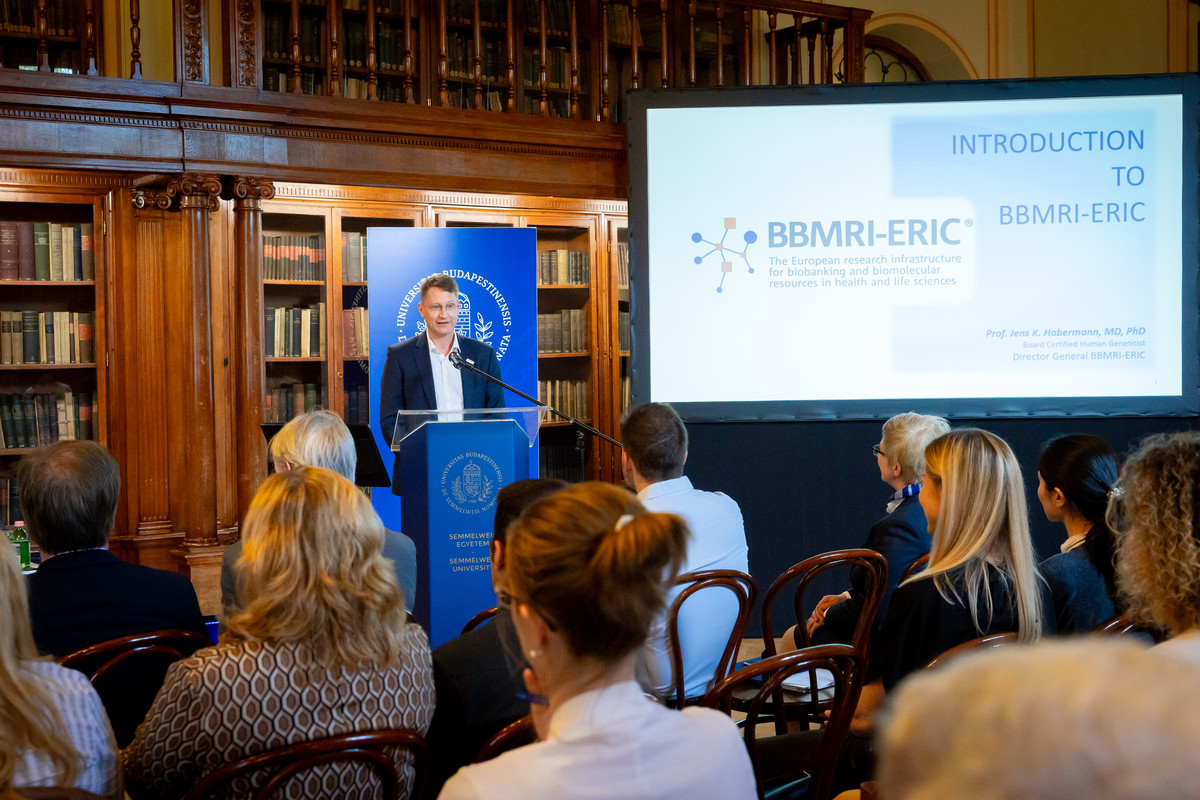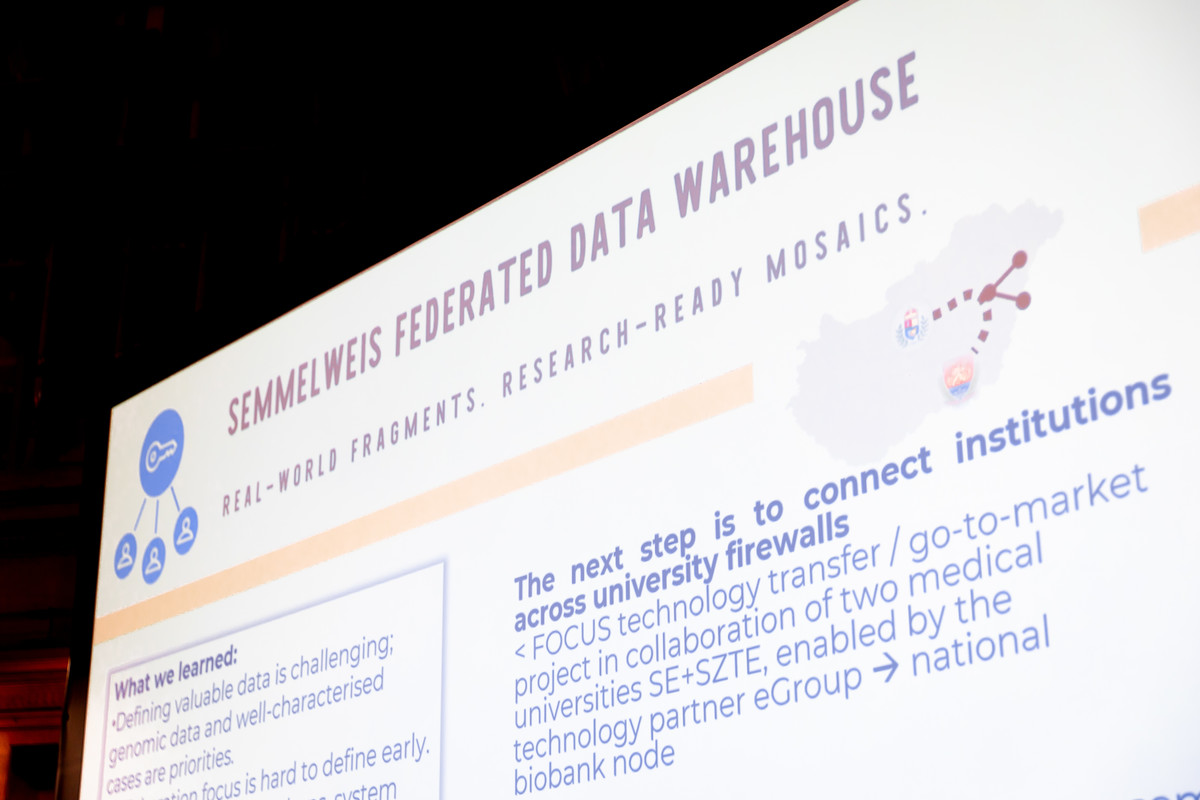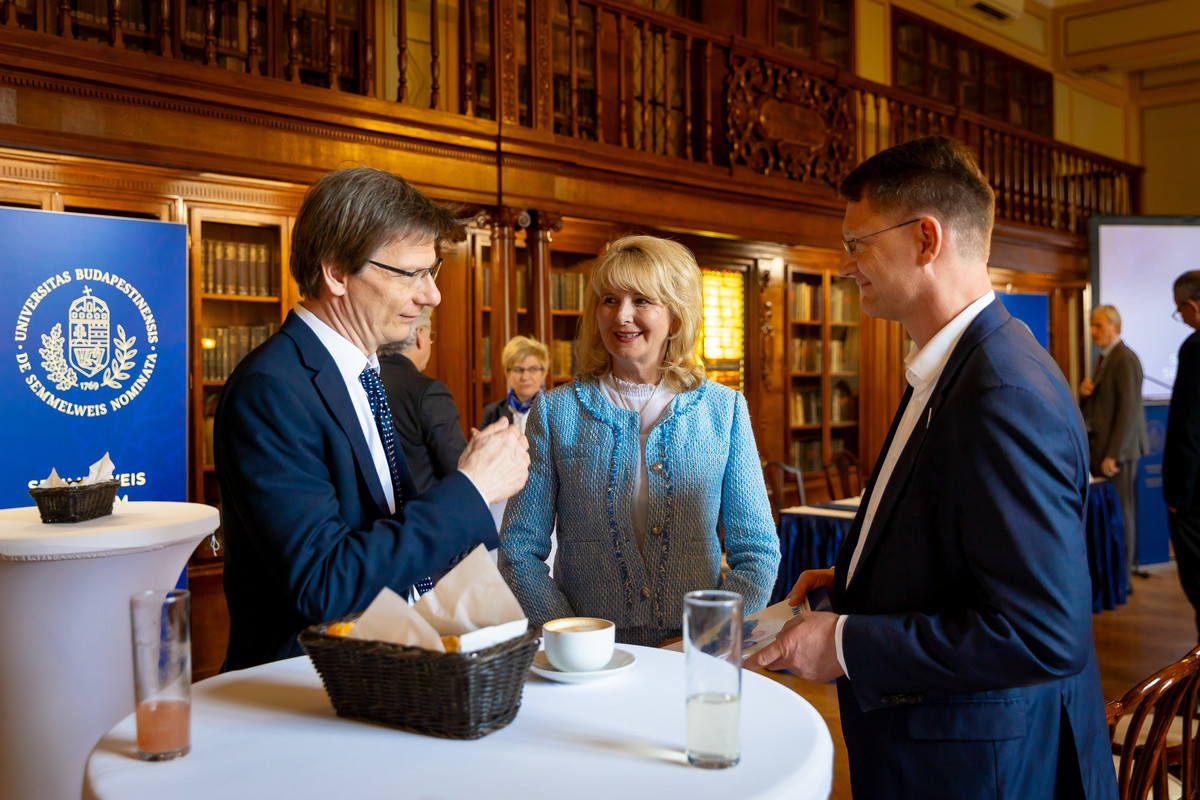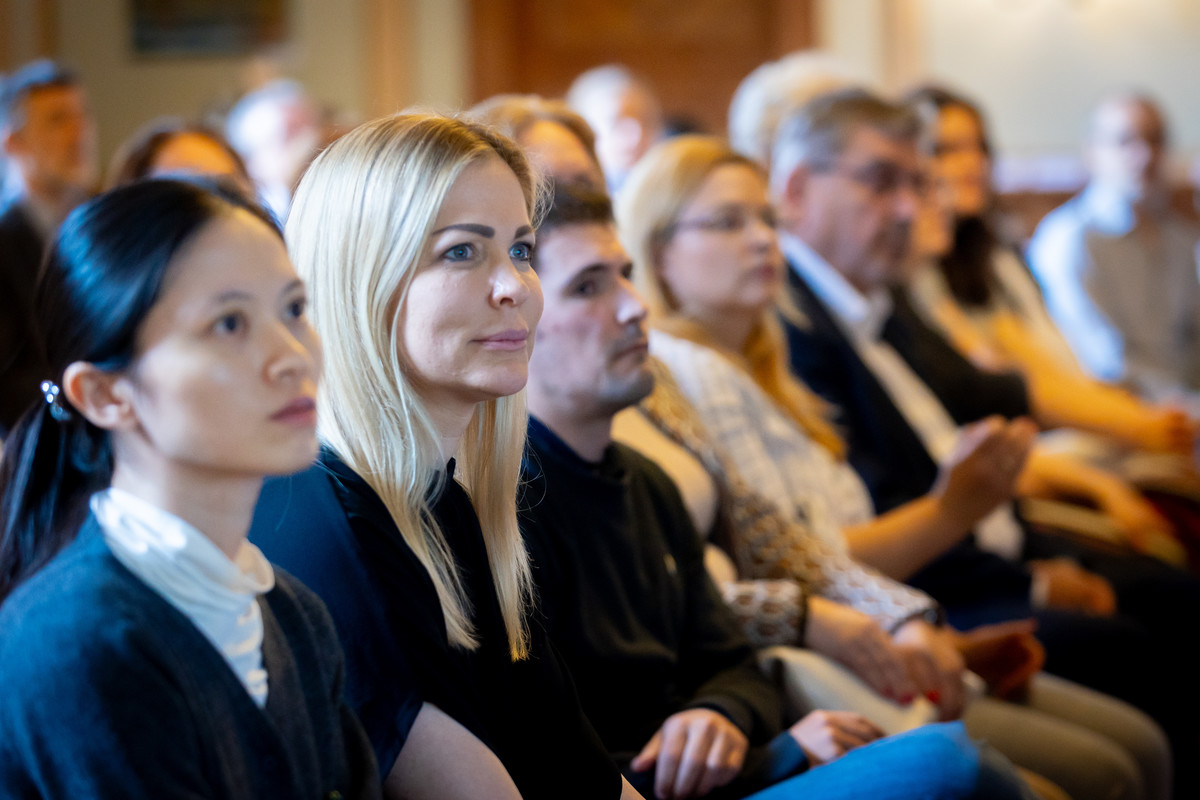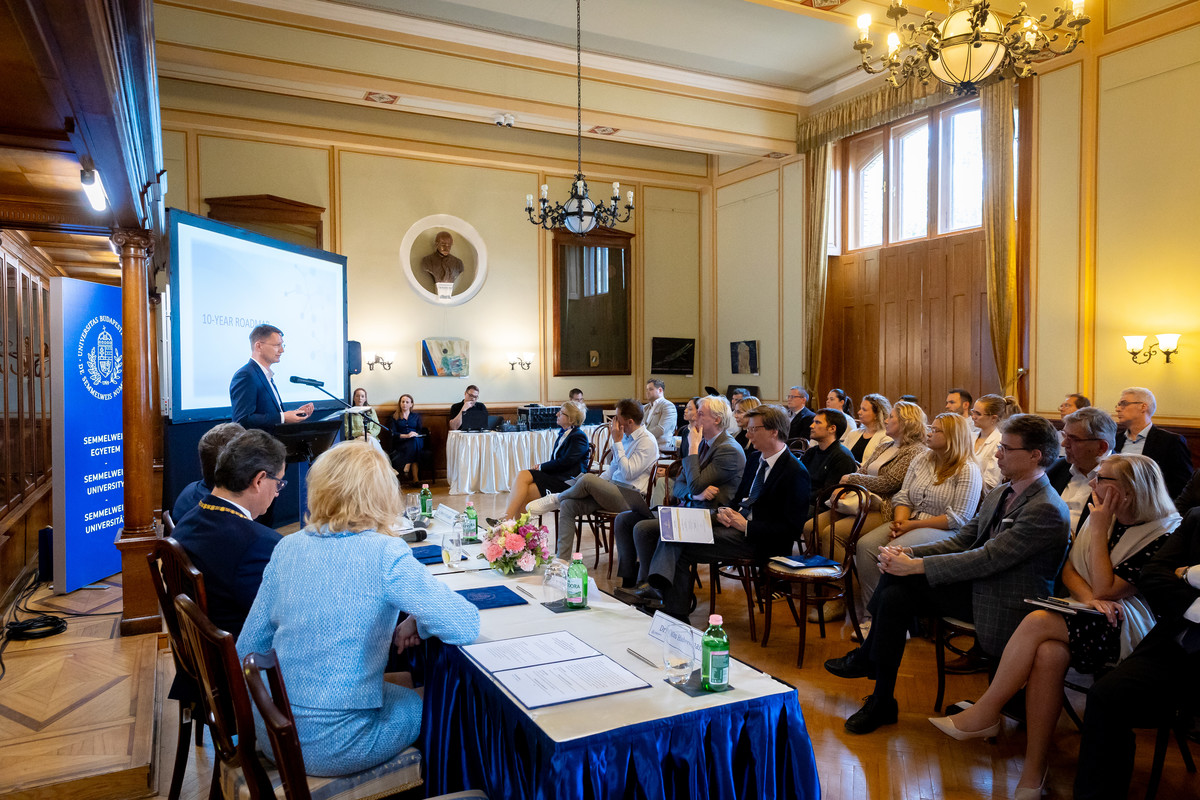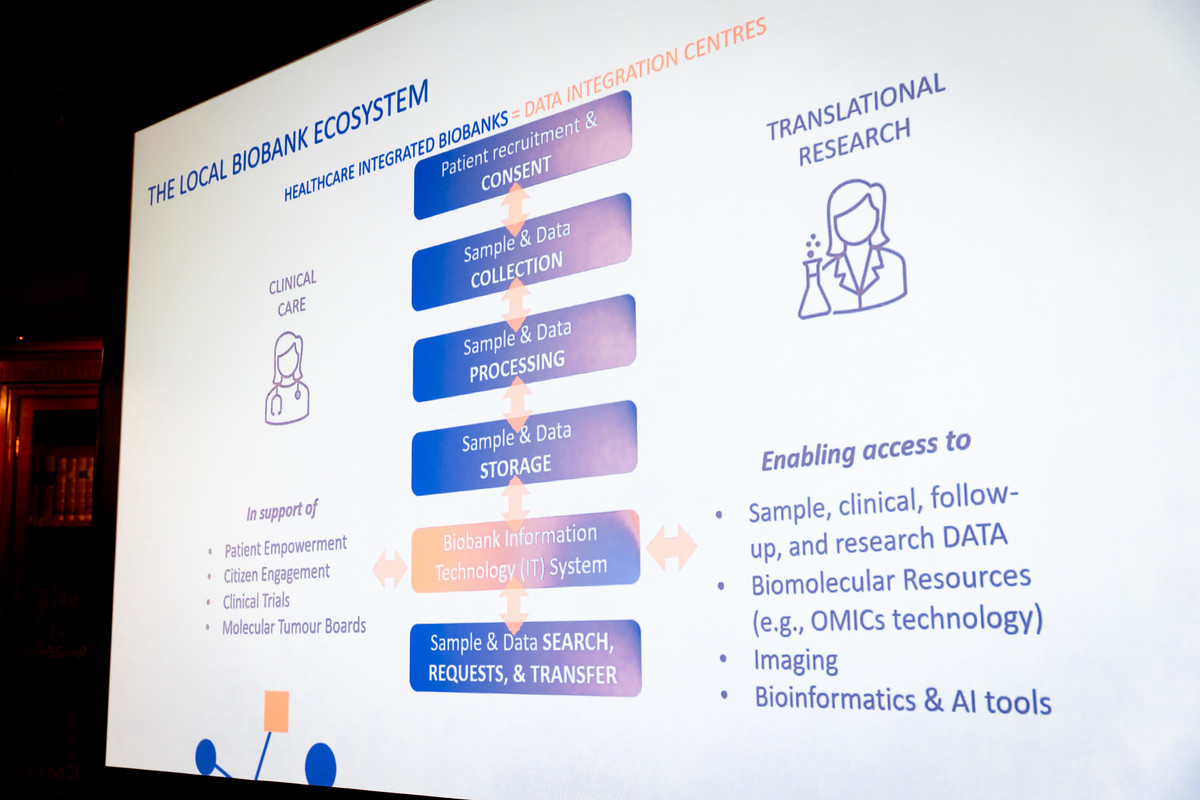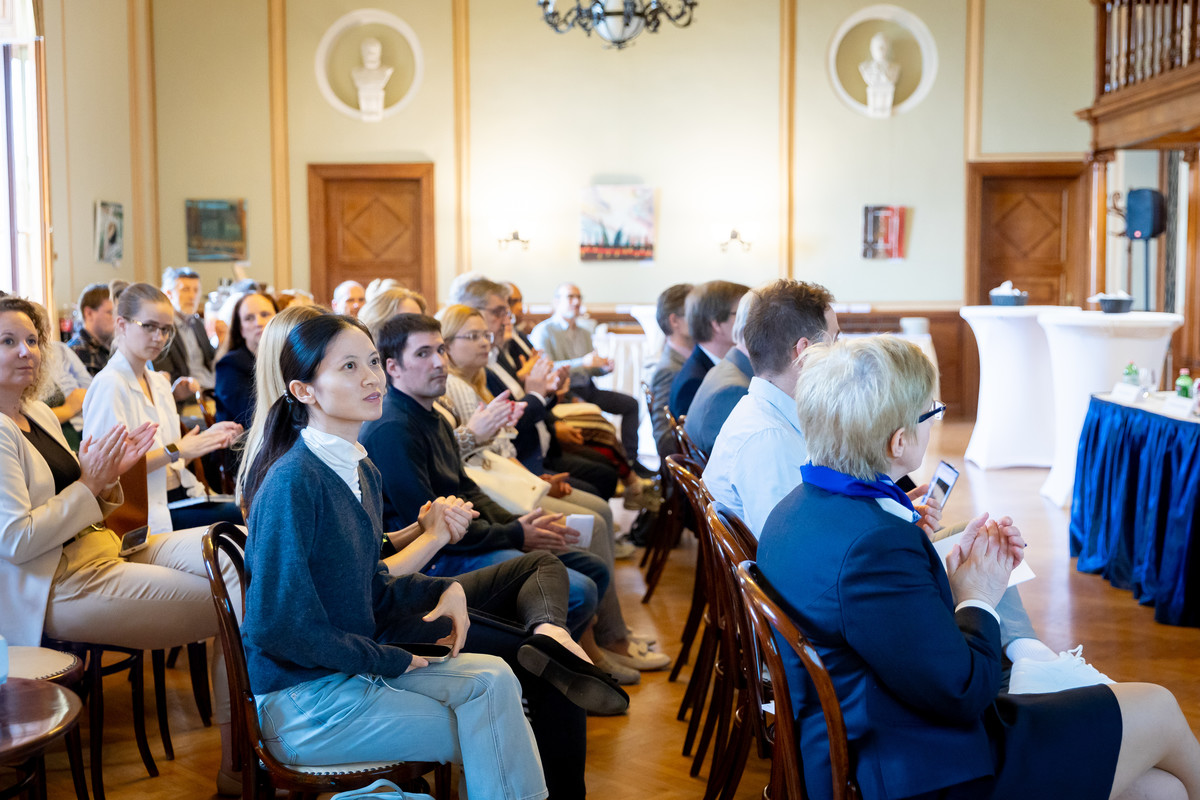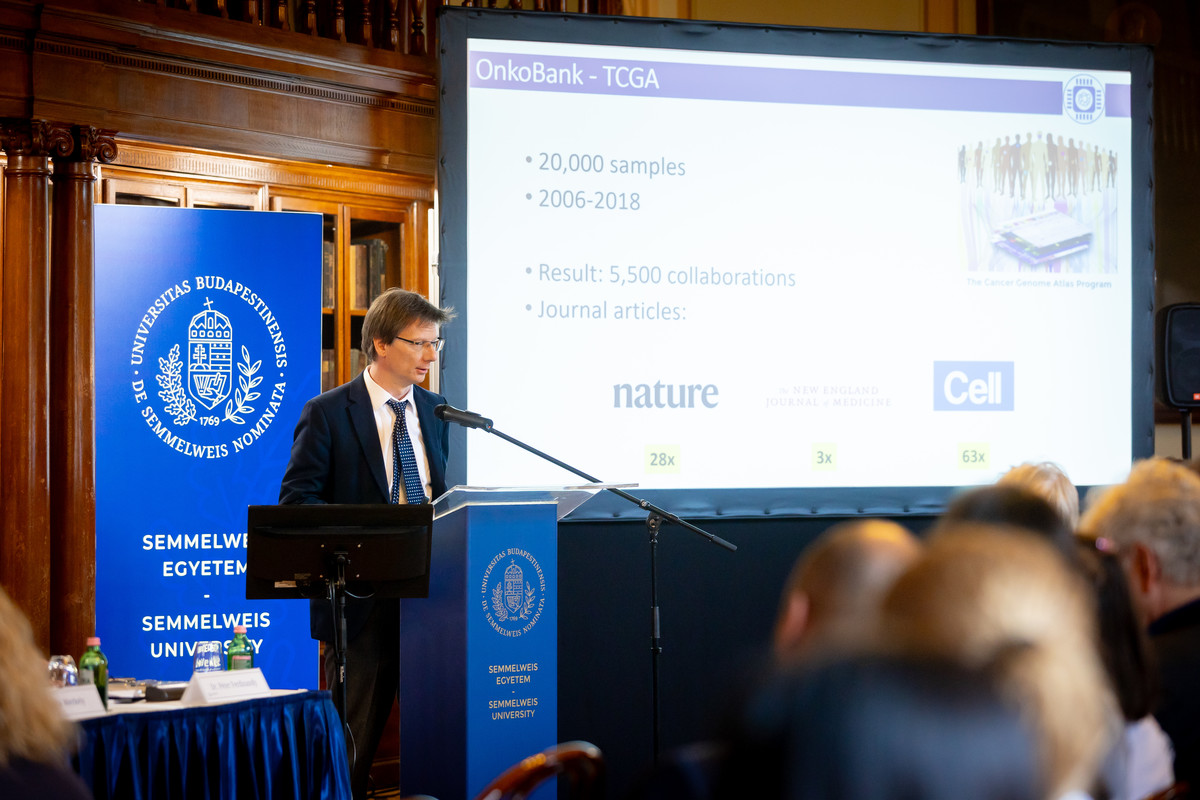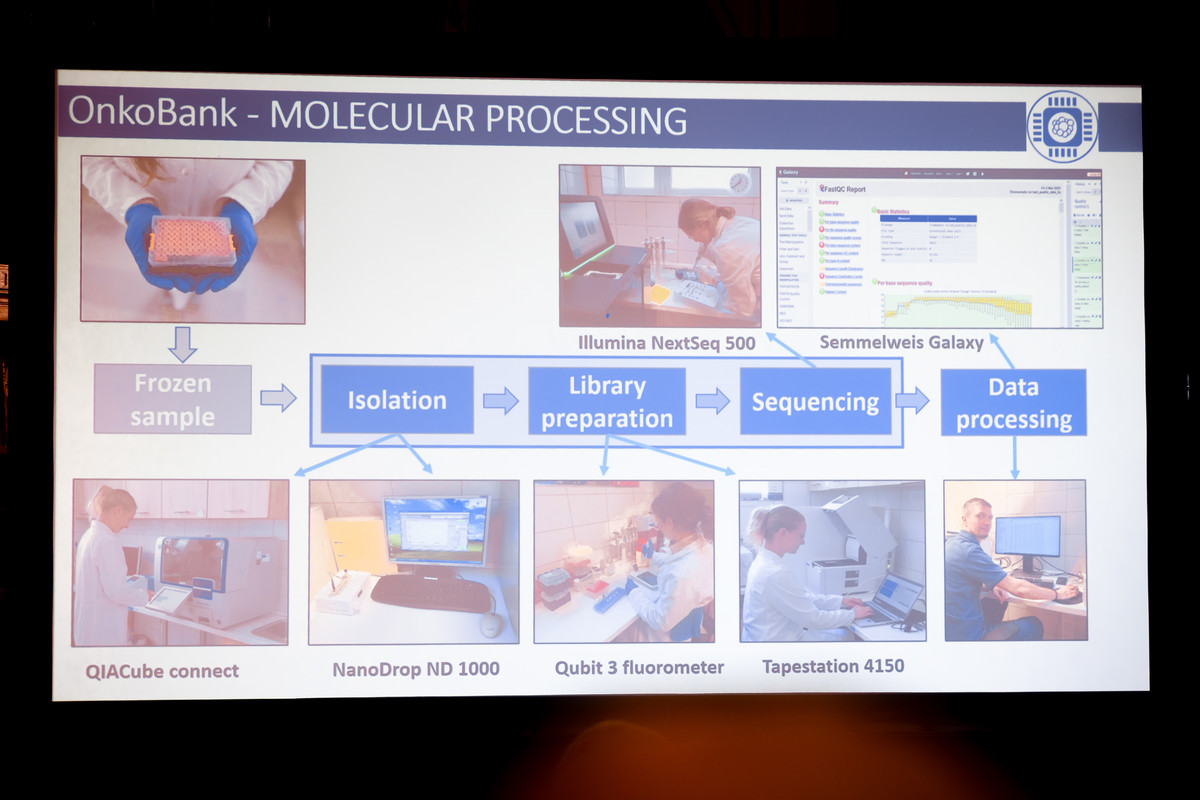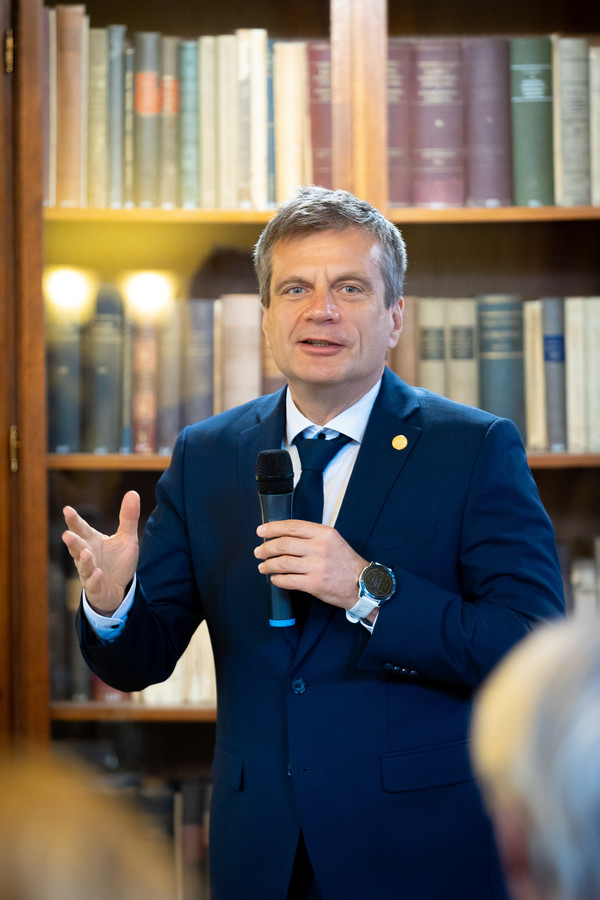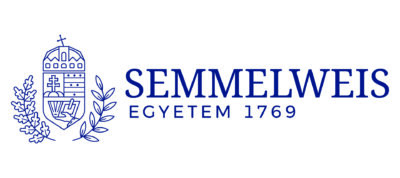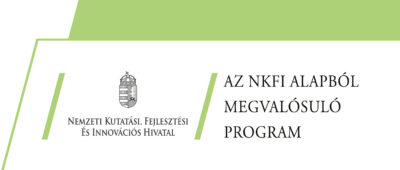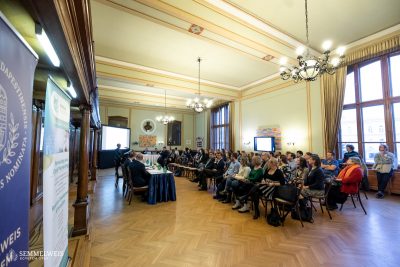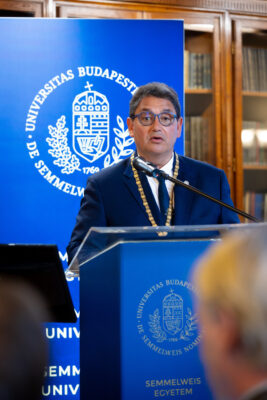 In his opening speech, Vice-Rector for Science and Innovations Dr. Péter Ferdinandy recalled that the grant awarded to the university within the framework of the Thematic Excellence Programme 2021 (TKP2021) aimed to establish the Semmelweis Federated Data Warehouse (SEFA) to support the data-protected sharing of national genomic data. In his welcome address, Dr. Béla Merkely, Rector of Semmelweis University, emphasized that although data science in healthcare had only been around for a decade and a half, it played an indispensable role in medicine today, and this was likely to become even more important in the future. “I am therefore delighted that the excellent specialists at Semmelweis University have created a significant development in this area, and more specifically in the field of biobank databases. This is a strategically important core facility, a tool for research and collaboration, the development of which will also contribute to increasing the number of our publications and patents, as well as our industrial revenues,” he added.
In his opening speech, Vice-Rector for Science and Innovations Dr. Péter Ferdinandy recalled that the grant awarded to the university within the framework of the Thematic Excellence Programme 2021 (TKP2021) aimed to establish the Semmelweis Federated Data Warehouse (SEFA) to support the data-protected sharing of national genomic data. In his welcome address, Dr. Béla Merkely, Rector of Semmelweis University, emphasized that although data science in healthcare had only been around for a decade and a half, it played an indispensable role in medicine today, and this was likely to become even more important in the future. “I am therefore delighted that the excellent specialists at Semmelweis University have created a significant development in this area, and more specifically in the field of biobank databases. This is a strategically important core facility, a tool for research and collaboration, the development of which will also contribute to increasing the number of our publications and patents, as well as our industrial revenues,” he added.
The experts involved in this call have created a data sharing system that could start a new era in health research. The new system will allow genetic and clinical data stored in healthcare institutions to be researched and analyzed while remaining physically in their original location. – Dr. Béla Merkely
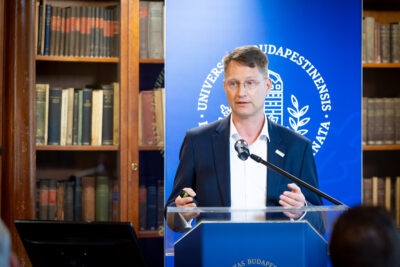 In his talk, Dr. Jens Habermann, Director General of the Biobanking and BioMolecular Resources Research Infrastructure – European Research Infrastructure Consortium (BBMRI-ERIC), outlined how the role of biobanks has evolved over the past decade and described the future directions planned for the European biobank network. BBMRI-ERIC connects the biobanks of 20 member states – including Hungary – and of five so-called observer states that have no voting rights. In total, the network links nearly 500 biobanks, supporting scientific research and medical innovation. Dr. Jens Habermann pointed out that modern biobanks collect not only biological samples but also detailed clinical data, genetic information, imaging results, and other biomolecular resources, turning them into data integration centers. Through the so-called Federated Platform, BBMRI-ERIC provides access to these data, currently covering more than 7 million patients across 32 countries. The One Health approach, which focuses on the interconnectedness of human, animal, and environmental health, was another major theme in the presentation. Over the next decade, BBMRI-ERIC aims to promote sustainable, climate-friendly operations, strengthen the biobank community, enhance collaborations with industry, and help expand global partnerships. Special attention will also be paid to patient-centeredness, respect for patient rights, and the responsible use of data. Dr. Jens Habermann stressed that biobanks would be key pillars of future precision medicine, but that collaboration between the scientific community, healthcare systems, and society at large was essential for further progress.
In his talk, Dr. Jens Habermann, Director General of the Biobanking and BioMolecular Resources Research Infrastructure – European Research Infrastructure Consortium (BBMRI-ERIC), outlined how the role of biobanks has evolved over the past decade and described the future directions planned for the European biobank network. BBMRI-ERIC connects the biobanks of 20 member states – including Hungary – and of five so-called observer states that have no voting rights. In total, the network links nearly 500 biobanks, supporting scientific research and medical innovation. Dr. Jens Habermann pointed out that modern biobanks collect not only biological samples but also detailed clinical data, genetic information, imaging results, and other biomolecular resources, turning them into data integration centers. Through the so-called Federated Platform, BBMRI-ERIC provides access to these data, currently covering more than 7 million patients across 32 countries. The One Health approach, which focuses on the interconnectedness of human, animal, and environmental health, was another major theme in the presentation. Over the next decade, BBMRI-ERIC aims to promote sustainable, climate-friendly operations, strengthen the biobank community, enhance collaborations with industry, and help expand global partnerships. Special attention will also be paid to patient-centeredness, respect for patient rights, and the responsible use of data. Dr. Jens Habermann stressed that biobanks would be key pillars of future precision medicine, but that collaboration between the scientific community, healthcare systems, and society at large was essential for further progress.
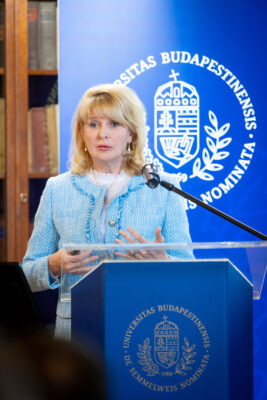 Dr. Mária Judit Molnár, Head of the Institute of Genomic Medicine and Rare Disorders at Semmelweis University, National Node Director for BBMRI-ERIC in Hungary, and Head of the Semmelweis Biobank Network, discussed how healthcare is being transformed by data-driven approaches. Precision medicine today relies not only on genetic information but also on integrating diverse health data, such as from wearable devices, imaging studies, and clinical records. The volume of healthcare data is enormous, and therefore successful data-driven care requires appropriate infrastructure, data security, standardized data formats, and the application of artificial intelligence. Semmelweis University’s own project began by mapping biobank data and, using the European standards of BBMRI-ERIC, established a privacy-preserving federated data-sharing system that protects patient rights and ensures the success of research by keeping data local.
Dr. Mária Judit Molnár, Head of the Institute of Genomic Medicine and Rare Disorders at Semmelweis University, National Node Director for BBMRI-ERIC in Hungary, and Head of the Semmelweis Biobank Network, discussed how healthcare is being transformed by data-driven approaches. Precision medicine today relies not only on genetic information but also on integrating diverse health data, such as from wearable devices, imaging studies, and clinical records. The volume of healthcare data is enormous, and therefore successful data-driven care requires appropriate infrastructure, data security, standardized data formats, and the application of artificial intelligence. Semmelweis University’s own project began by mapping biobank data and, using the European standards of BBMRI-ERIC, established a privacy-preserving federated data-sharing system that protects patient rights and ensures the success of research by keeping data local.
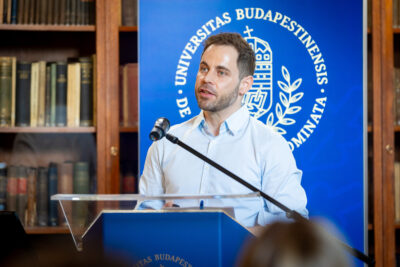 Dr. Viktor Molnár, Assistant Lecturer at the Institute of Genomic Medicine and Rare Disorders and coordinator of the Semmelweis Biobank Network, introduced the Semmelweis Federated Data Warehouse, which allows for the secure and efficient sharing of diverse, scattered biobank data. The goal of the project was to create a common data model that harmonizes both genetic and clinical information. The new system will allow researchers to define virtual cohorts and retrieve the data they need without personal information leaving its original location. For example, the platform also supports genome-wide association studies (GWAS). Throughout the project, emphasis was placed on data security and the possibility of future expansion, including connecting with other universities and enhancing cryptographic protection.
Dr. Viktor Molnár, Assistant Lecturer at the Institute of Genomic Medicine and Rare Disorders and coordinator of the Semmelweis Biobank Network, introduced the Semmelweis Federated Data Warehouse, which allows for the secure and efficient sharing of diverse, scattered biobank data. The goal of the project was to create a common data model that harmonizes both genetic and clinical information. The new system will allow researchers to define virtual cohorts and retrieve the data they need without personal information leaving its original location. For example, the platform also supports genome-wide association studies (GWAS). Throughout the project, emphasis was placed on data security and the possibility of future expansion, including connecting with other universities and enhancing cryptographic protection.
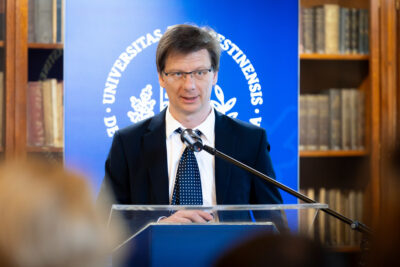 Dr. Balázs Győrffy, Head of the Department of Bioinformatics at Semmelweis University, gave a detailed presentation of the Semmelweis OnkoBank, which was launched in 2021 and now contains samples from more than 2,500 cancer patients. The goal is to create a national database that can overcome the limitations of international datasets such as The Cancer Genome Atlas (TCGA) by including detailed treatment histories and long-term follow-up data to support research. In addition to frozen tissue samples, blood samples, clinical data, and patient consent forms are also collected, and RNA sequencing and proteomic analyses are performed during processing. The OnkoBank will soon move into a dedicated space within the Semmelweis University Health Industry-Biotechnology Science Park with modern storage and processing laboratories.
Dr. Balázs Győrffy, Head of the Department of Bioinformatics at Semmelweis University, gave a detailed presentation of the Semmelweis OnkoBank, which was launched in 2021 and now contains samples from more than 2,500 cancer patients. The goal is to create a national database that can overcome the limitations of international datasets such as The Cancer Genome Atlas (TCGA) by including detailed treatment histories and long-term follow-up data to support research. In addition to frozen tissue samples, blood samples, clinical data, and patient consent forms are also collected, and RNA sequencing and proteomic analyses are performed during processing. The OnkoBank will soon move into a dedicated space within the Semmelweis University Health Industry-Biotechnology Science Park with modern storage and processing laboratories.
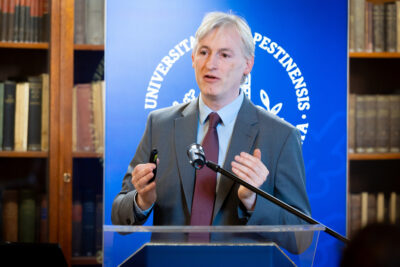 Antal Kuthy, CEO of E-Group ICT, spoke about the future of the SEFA project and the role of artificial intelligence (AI) in Europe. As he pointed out, technology companies are increasingly becoming integral players in healthcare. The aim of the EU-supported FedEU.ai initiative is to build sovereign, distributed, and trustworthy AI infrastructure – a solution that will enable conclusions on a global scale to be drawn from sensitive data without moving it from its original location. Semmelweis University’s biobank project is part of this international program and could play a key role in the developments also known as the “Budapest Project”.
Antal Kuthy, CEO of E-Group ICT, spoke about the future of the SEFA project and the role of artificial intelligence (AI) in Europe. As he pointed out, technology companies are increasingly becoming integral players in healthcare. The aim of the EU-supported FedEU.ai initiative is to build sovereign, distributed, and trustworthy AI infrastructure – a solution that will enable conclusions on a global scale to be drawn from sensitive data without moving it from its original location. Semmelweis University’s biobank project is part of this international program and could play a key role in the developments also known as the “Budapest Project”.
With the support of the National Research, Development and Innovation Office, the Hungarian Biobank Node (HBN) of BBMRI-ERIC was established in 2021 and immediately connected to BBMRI-ERIC, Europe’s largest biobank network. HBN is coordinated by Semmelweis University under the leadership of Dr. Mária Judit Molnár. The best organized of the biobanks in Hungarian institutions is the Semmelweis Biobank Network (SE Biobank), which was established in 2011 and currently holds the biological samples and clinical data of nearly 100,000 individuals. The long-term goal of the university is to build national data-sharing infrastructure that is compatible with international standards and will enable Hungary to actively participate in international health research collaborations.
Dr. Balázs Csizmadia
Photos by Boglárka Zellei – Semmelweis University
TKP2021-NVA-15
Establishment of the Semmelweis Federated Data Warehouse (SEFA) to support the data-protected sharing of national genomic data
